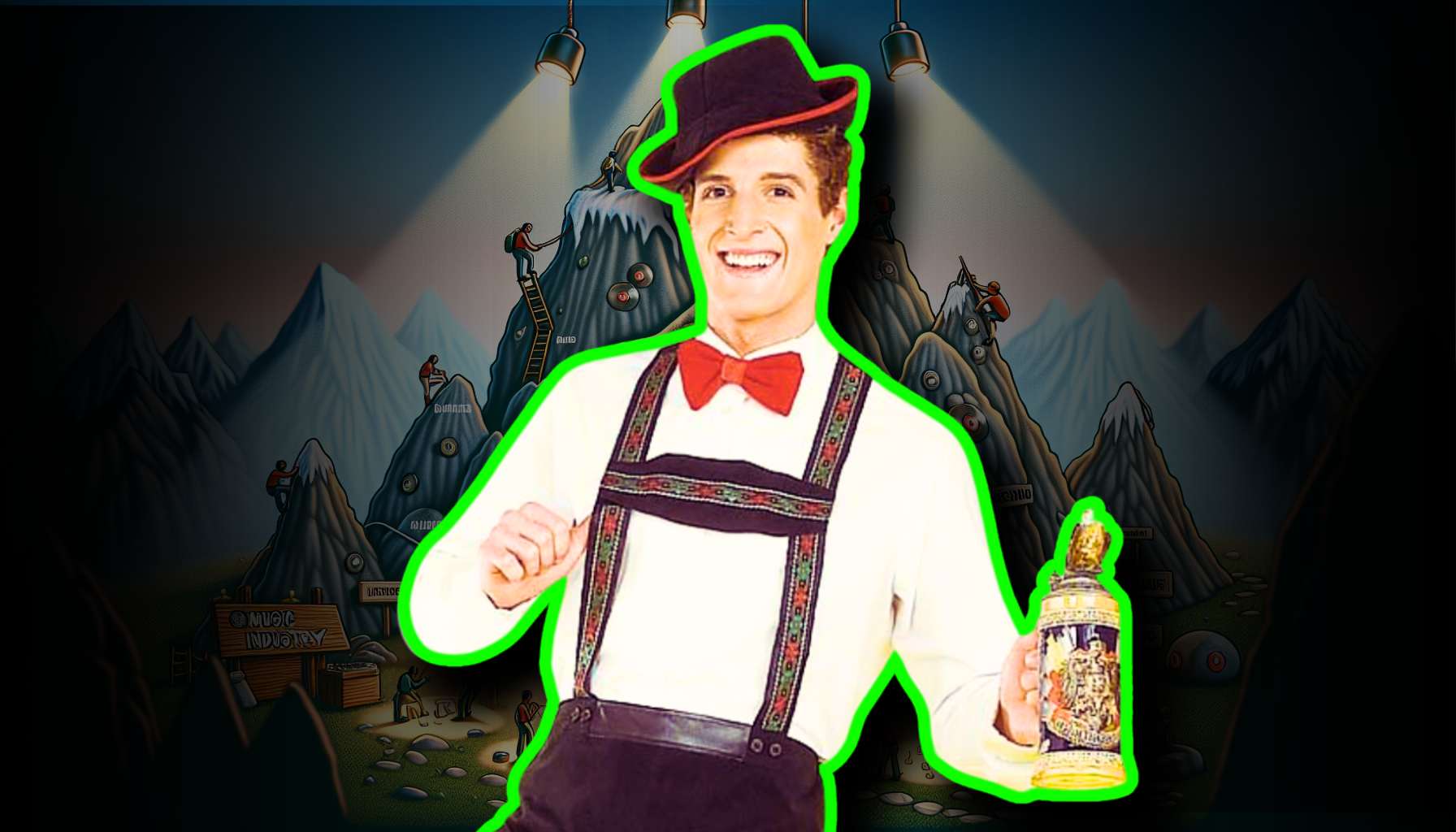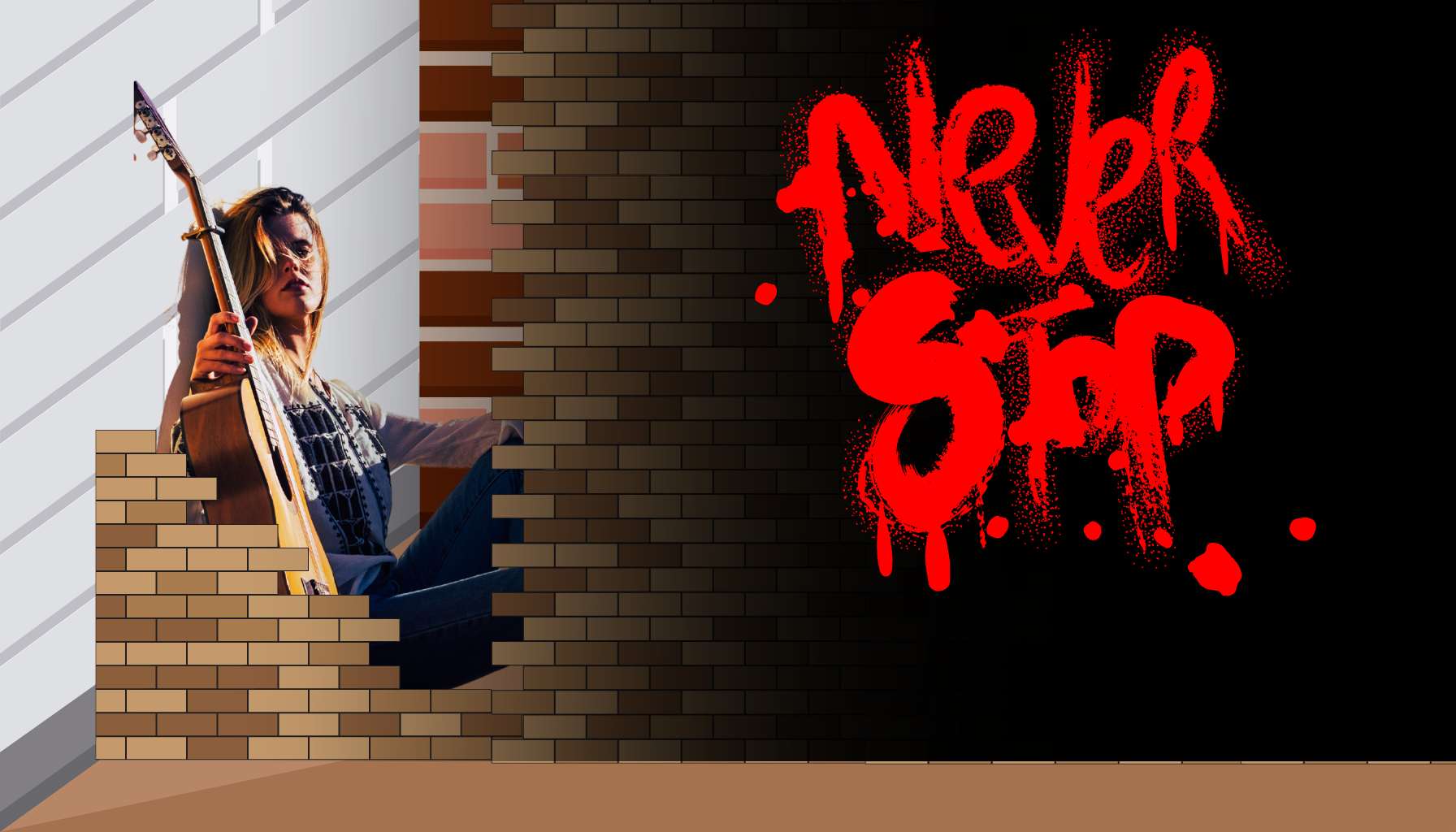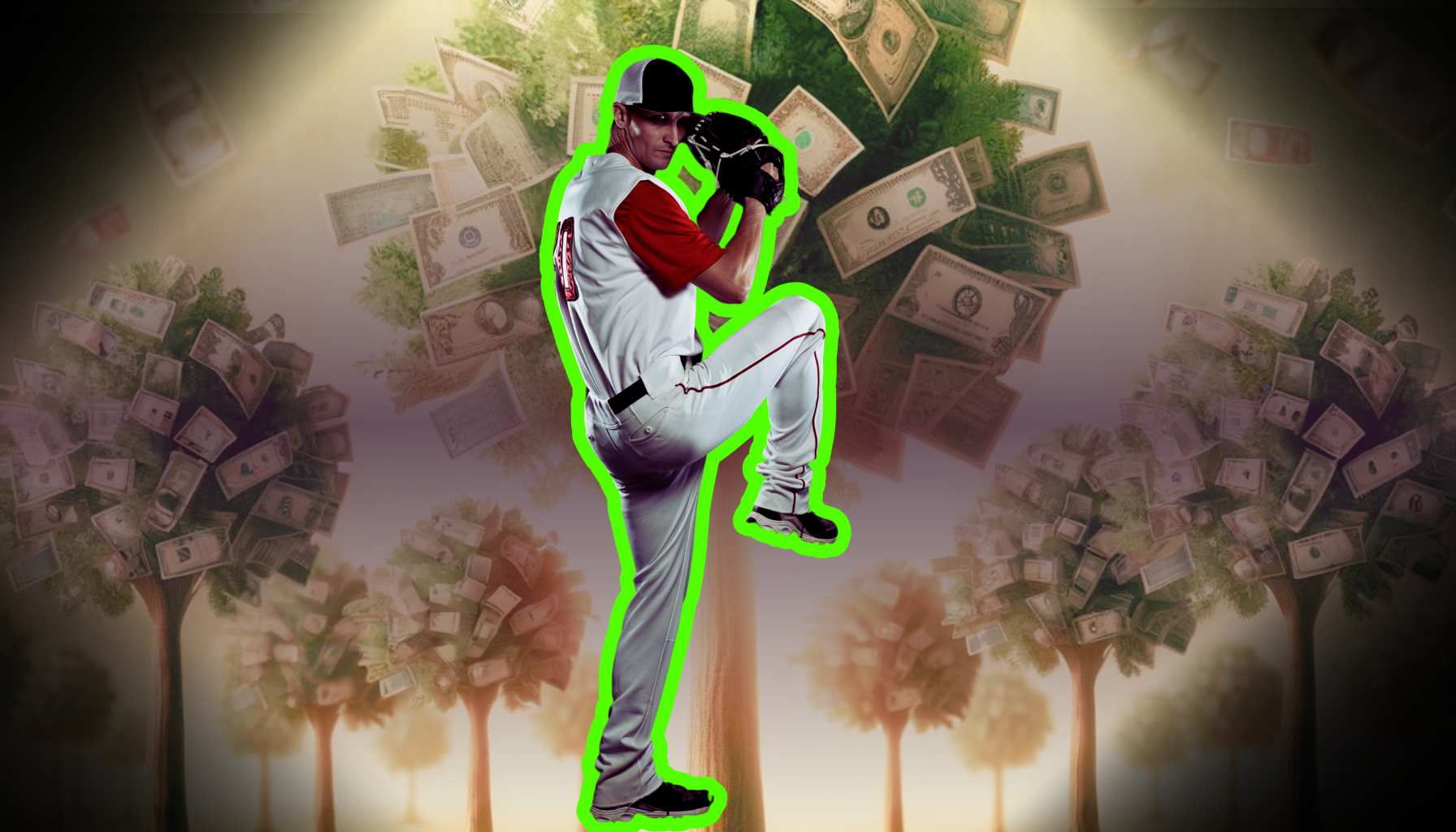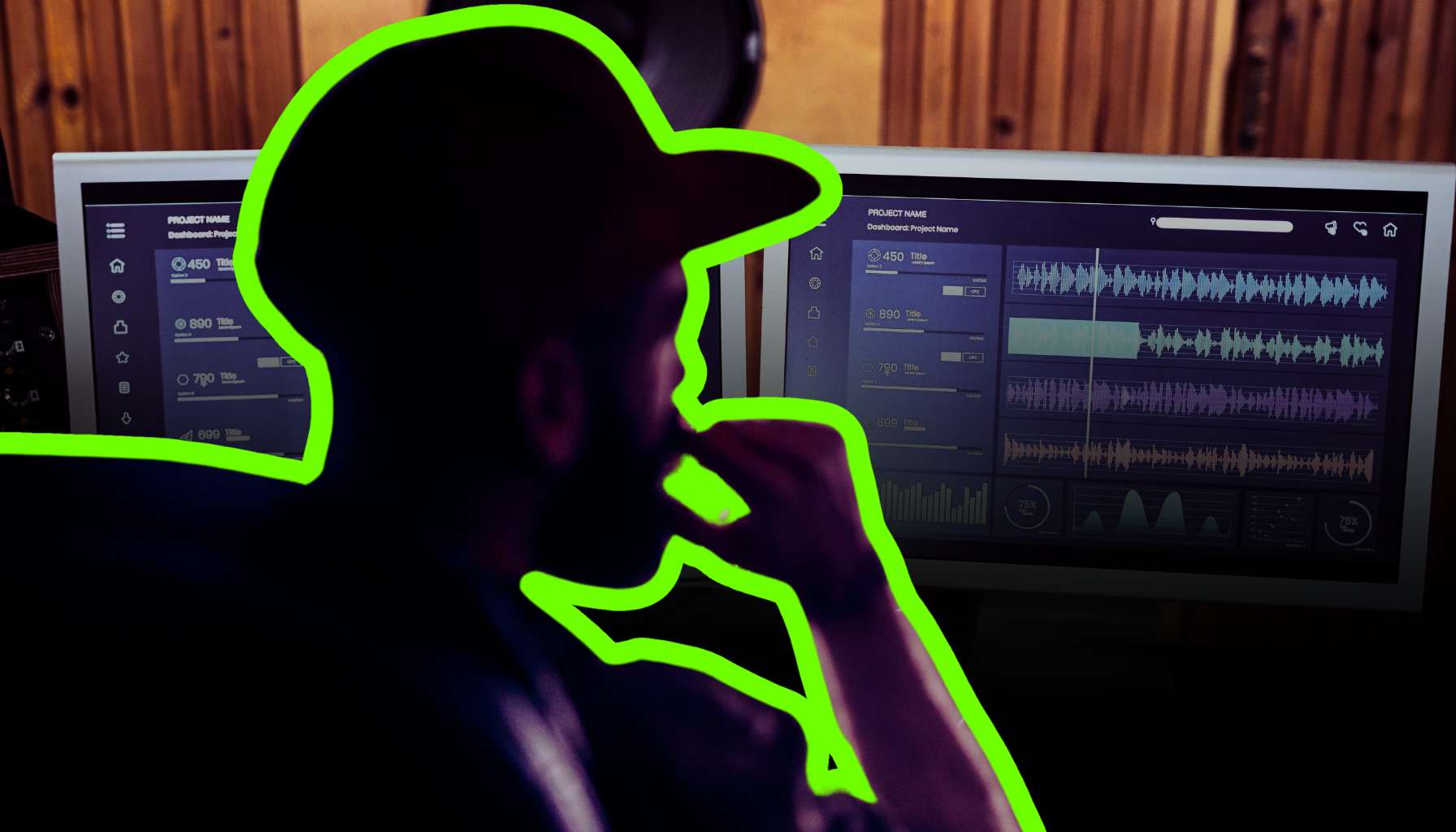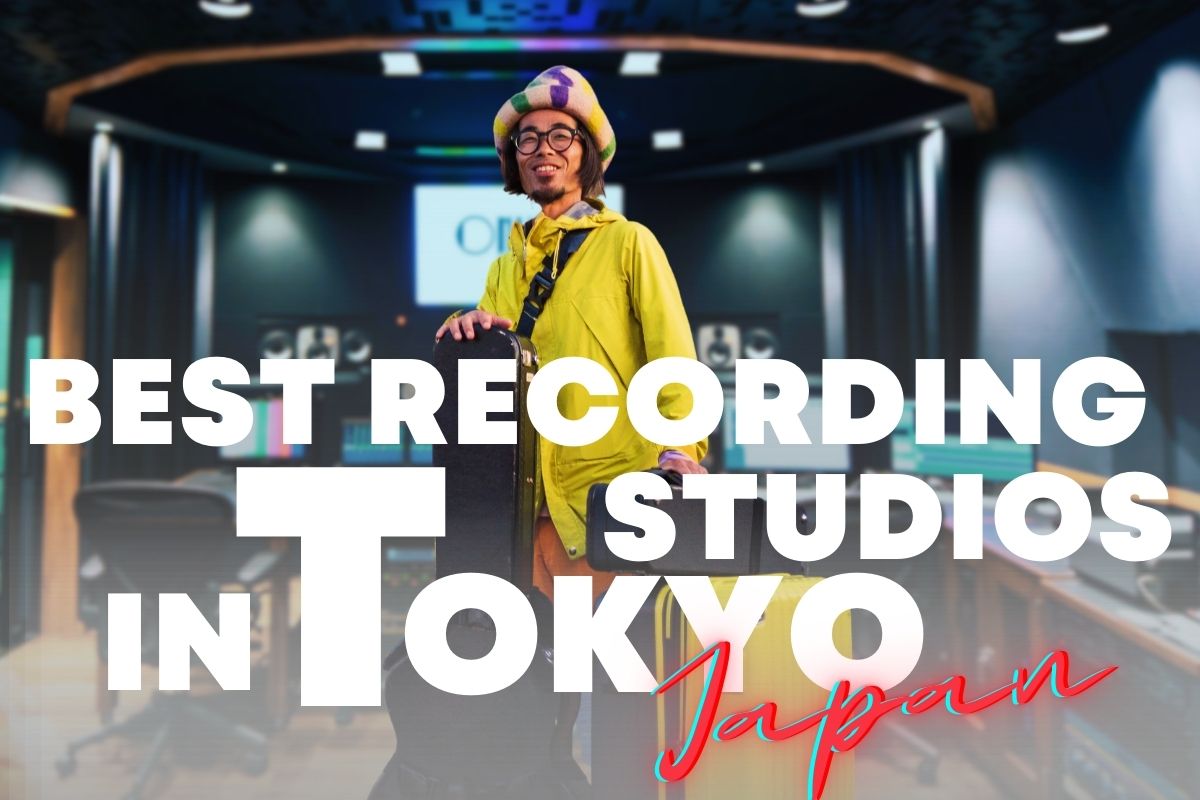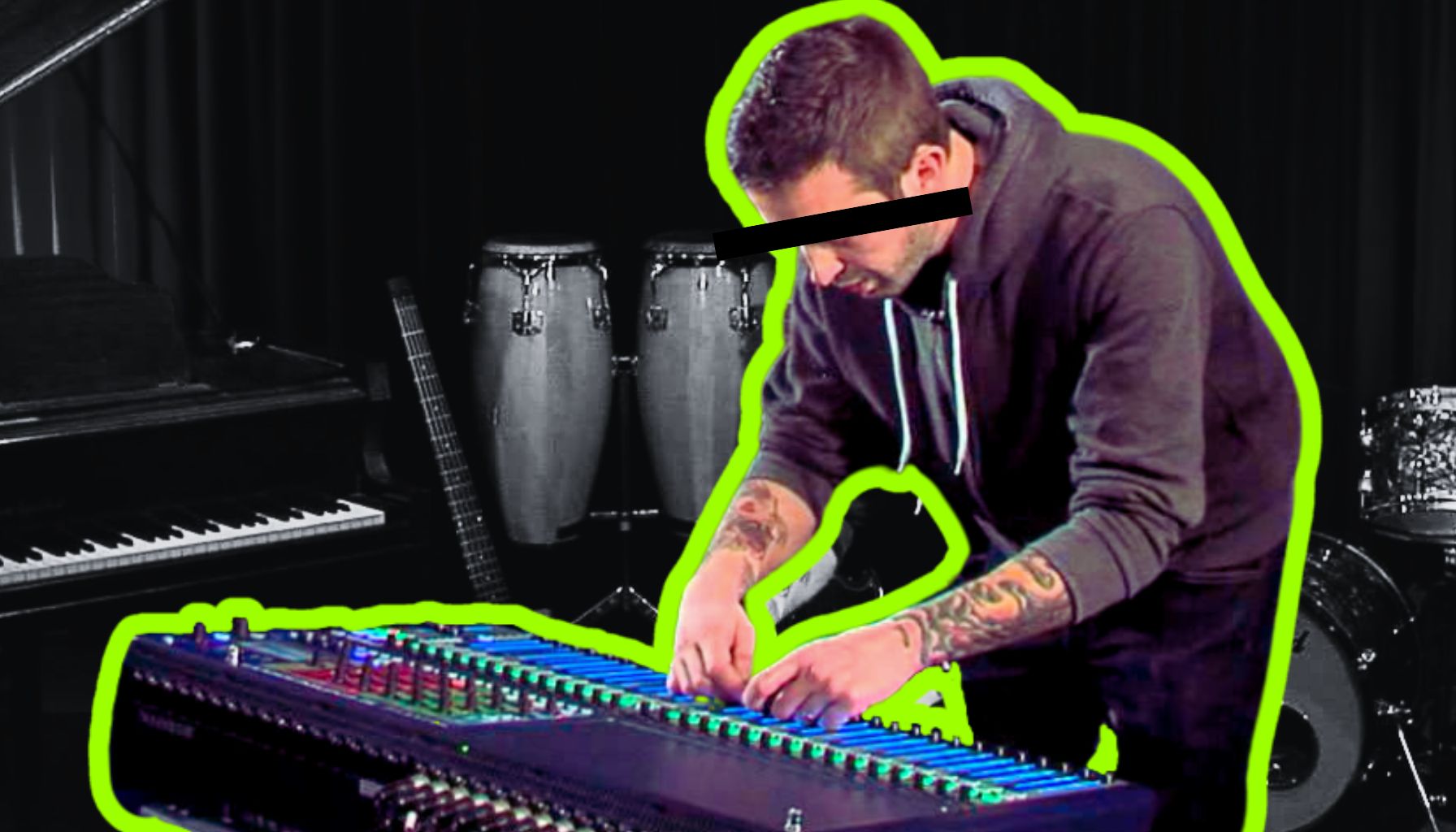Introduction to Music Licensing
In a world where every budding musician has a home studio and a Soundcloud account, standing out might feel like trying to recite Shakespeare in the middle of a roaring rock concert. But what if I told you there’s a golden ticket to not only elevate your music to a wider audience but also create a new revenue stream? Enter the stage left: music licensing for film and TV—a territory where the notes you string together could be the next backdrop to an iconic movie scene or a binge-worthy Netflix series.
Understanding Music Rights and Licensing
Before you start fantasizing about your tune becoming the soundtrack to the latest Hollywood hit, let’s decipher the enigma of music rights. Cue the spotlight on master, mechanical, synchronization, and performance rights; each one a critical player in the music licensing game.
Types of Rights: Master, Mechanical, Synchronization, and Performance
Understanding how these rights interplay is crucial—for without this knowledge, you might find your wallet as empty as a concert hall during soundcheck. The master recording rights are owned by whoever records the tune. The mechanical rights cover the composition and lyrics, ensuring you get paid when your music is reproduced. Then, there’s the synchronization (or “sync”) right, allowing your track to be synchronized with moving images. Lastly, performance rights track down royalties whenever your melody waltzes the airwaves, public spaces, or TV. The intricate ballet of these rights is no small affair, as they’re the basis of music licensing in film and TV. They’re why, when that slow-motion kiss happens on screen, an artist somewhere hears the sweet sound of ka-ching.
The Role of Music in Film and TV Productions
Whether it’s the uplifting montage or the heart-wrenching final scene, music acts as the emotional compass for viewers. It’s the invisible cast member that can make your heart leap or plummet—all while a character doesn’t utter a word.
The Benefits of Licensing Your Music
Exposure and Audience Reach Through Media
But why dive into the labyrinth of music licensing? One word: exposure. It’s the difference between singing in your shower and serenading a stadium. When your music lands in a show or commercial, your audience instantly multiplies, catapulting your labor of love into the ears of millions.
Revenue Streams from Licensing Deals
And then there’s the not-so-small matter of moolah. Licensing is rather like fishing with a royalty-shaped hook; with the right bait, you’ll reel in consistent cash flow. While streaming might donate pennies to your piggy bank, a single licensing deal could cover your rent for months. Licensing music is a bit like entering a partnership—it’s all about mutual gains. The filmmakers get a riveting tune for their vampire teen romance, and you get the satisfaction of your music striking the emotional chord they need, plus a potentially hefty paycheck.
Preparing Your Music for Licensing
Imagine your track setting the scene in the latest Netflix binge or playing as the backdrop to an unforgettably emotive Super Bowl commercial. Pretty great, right? As musicians scramble for a piece of the sync pie, let’s reel in the practicalities of preparing your music for film and TV without getting lost in the licensing labyrinth.
Creating Music with Licensing in Mind
When it comes to licensing, creating music that’s as flexible as a yoga instructor on a good day is key. Your compositions need to be the sonic equivalent of a Swiss Army knife—versatile enough to adapt to various scenes and emotions.
Composing Versatile Tracks for Different Media Settings
Consider the moods and settings that your music could complement. Is your song the hero music needs for that climactic chase scene, or the tear-jerker for the inevitable on-screen breakup? Dabble in a variety of tempos and keys to expand your track’s marketability, and remember: leaving space for dialogue or voice-over is like leaving room for dessert – always a good idea.
Recording Quality and Professional Standards
As much as we love the lo-fi charm of your early garage demos, high production levels are non-negotiable. Revered industry professionals won’t touch your music with a ten-foot pole unless the quality matches their standards. Think crystal-clear audio, not something that sounds like it was recorded in your cousin’s basement (unless your cousin has an acoustically treated basement, that is).
Organizing Your Music Catalogue
Your meticulously produced tracks deserve a home that’s as organized as Marie Kondo’s sock drawer. With a well-maintained music catalogue, you’re not just a musician; you’re a music librarian, ready to hand the perfect track to the right people.
Metadata: Importance and Best Practices
Metadata is your music’s fingerprint – unique identifiers that could mean the difference between your track getting picked or passed over. Your songs need to stand out in the memory of a music supervisor digging through a digital mountain of potential gems. Think of metadata as your music’s flashy business card, listing everything from the BPM to the moods and instruments used.
Protecting Your Work: Copyright Registration and PRO Membership
Before you unleash your tunes into the wild west of the music biz, ensure they’re protected faster than you can say “cease and desist.” Copyright registration and affiliating with a Performance Rights Organization (PRO) are your shields against the slings and arrows of outrageous fortune – or at least those of an increasingly complex music industry. With your tracks sparkling with recording brilliance and your catalogue as meticulous as a tax accountant in April, you’re set to venture into the world of licensing.
Finding Licensing Opportunities
Imagine this: Your track sets the scene for a heart-wrenching finale of a popular series or scores an epic car chase in a blockbuster film. Pretty cool thought, right? But before your composition can reach those cinematic heights, you need to navigate the labyrinth that is finding and securing music licensing opportunities. Just having your music ready isn’t enough. It’s like owning a Ferris wheel but not setting up at the fair – nobody knows it’s there to enjoy the ride. So, let’s get your musical Ferris wheel to the carnival of film and TV!
Research and Networking
Understanding the Needs of Music Supervisors
Getting your track into the right ears starts with research – and not the kind that had you snoozing in the back of the lecture hall. Dive deep into the world of music supervisors because they are the gatekeepers to your sync licensing success. They’re constantly on the hunt for the perfect track that brings the screen to life, so knowing what tickles their fancy can give you an upper hand.
Building Relationships in the Film and TV Industry
Think of the music industry as a grand mixer where networking is the handshake that could lead to your next licensing deal. From rubbing elbows at industry events to engaging on social media, building relationships is as crucial as that reverb on your snare that screams ‘80s. Pro tip: Offer to help, collaborate, and add value – it’s about what you can do for them, not just what they can do for you.
Utilizing Music Libraries and Licensing Services
How Music Libraries Work
Music libraries act like matchmakers, pairing your catchy tunes with filmmakers and TV producers in search of that sonic spark. By housing your music in these libraries, you’re placing your compositions on a virtual shelf where it can be browsed and selected, kind of like online dating for your music. But remember to research each library – you want a long-lasting relationship, not just a one-night sync.
Selecting the Right Licensing Platform for Your Music
With various licensing platforms available, it’s essential to choose one that aligns with your musical style and career goals. Each platform has its own process and clientele, so finding the best fit is like choosing the right shoes for a marathon – comfort is key, and in this case, ‘comfort’ equates to exposure and revenue. Now that you’re armed with research prowess and networking savvy, you could be moments away from hearing your tunes provide the backdrop to anything from a tear-jerker scene to a futuristic advert about flying cars.
Pitching Your Music
Clad with the knowledge of a digital-age troubadour, you’re ready to move to the bold act of pitching your music. The next stage in your industry conquest involves crafting a magnetic pitch, creating a sizzling Electronic Press Kit, and tailoring your presentation to sweep music supervisors right off their feet – figuratively speaking, of course. Stride confidently into this next phase, like a knight wielding a melody-infused lance, ready to make an impact in the world of licensing. And when you do, remember it’s not about peppering music supervisors with your tunes but about offering a solution to their musical puzzle. It’s your time to shine, so light up that neon sign and get ready to show the film and TV world what you’ve got!
Preparing Your Music for Licensing
Now that you’ve tuned in to the potent potential of music licensing, it’s time to set the stage for your tunes. Strap in, composers—you’re about to learn how to create masterpieces with the silver screen in mind, organize your catalogue like the Dewey Decimal System, and ensure your music is not just heard but felt in the bones of viewers worldwide. Forget just wanting to break into the industry—if done right, your music could soon be the reason someone’s heart skips an actual beat during scene twenty-four. Let’s roll the opening credits on this chapter of your music career.
Pitching Your Music
Eureka! You’ve mastered your tracks and organized your music catalogue, but what’s next on the stairway to licensing stardom? Ah, it’s time to perfect the pitch – and no, we’re not talking baseball. Making a compelling pitch is much like a courtship; you want to woo music supervisors and filmmakers, showing them why your music is the missing piece to their audio puzzle.
Making a Compelling Pitch
Now you could simply barrage industry pros with cold emails, or you could craft a pitch that’s as irresistible as a fresh doughnut at a weight watchers meeting. Focus on the narrative – tie your music to a story or emotion that aligns with their project. Remember, you’re not just selling a song, you’re providing the soundtrack to their creative vision.
Pitching Directly to Music Supervisors and Filmmakers
Quality over quantity should be your mantra. Music supervisors are swamped with tunes vying for a spot in their latest project. When you pitch, make it personal and professional. Show them that you’ve done your homework, that you understand their work, and explain succinctly why your tracks will elevate their production.
Effective Communication and Professionalism
Don’t be a robot – industry pros can sniff out a mass email from a mile away. Personalize your engagement, but keep it as slick as your production. Be clear, concise, and make sure every interaction screams ‘pro’. In the music biz, your professionalism can play as loud as your beats.
Crafting a Press Kit and Electronic Press Kit (EPK)
Here’s the deal: Your EPK is like your musical CV on steroids. It needs to not just sing, but serenade the person looking at it. Feature your music, of course, but also photos, bios, and press coverage. Anything that shines a spotlight on your brand. Oh, and keep it updated – nothing says ‘I couldn’t care less’ like a dusty EPK from 2015.
Key Components of an EPK for Licensing
Quality tracks are the meat of the EPK, but don’t forget the salad – your compelling bio, electrifying images and videos, and those glowing testimonials. Include contact information that doesn’t lead to a voicemail abyss, and make accessing your music as easy as a Sunday morning.
Tailoring Your Presentation to the Film and TV Industry
Remember, context is king. Stitch your presentation to suit the fabric of the film and TV tapestry. Your EPK should be cinematic in feel, spotlighting tracks that nod towards the visual storytelling medium. If your track is a fit for gory horror flicks, then your EPK better not look like it’s auditioning for a rom-com soundtrack. Warming up your pitching arm in this digital age isn’t just about throwing tracks into the void. It’s about making connections, understanding the unique palette of sound the film and TV industry desires, and presenting your music so it sings, dances, and sparkles with the promise of becoming part of their narrative tapestry.
Navigating Legal Agreements
So you’ve shimmied through the velvet ropes of the music biz’s VIP room: lucrative licensing deals beckon, and your tracks are ripe for film and TV. But before your masterpiece graces the silver screen or the airwaves of prime time television, you’ve got to wrap your head around the legal tangle known as licensing contracts. After all, diving into legal agreements without a parachute is like sipping gin with Hemingway—intoxicating but potentially perilous.
Understanding Licensing Contracts
Legal agreements in the music world are akin to those corn mazes at Halloween—confusing, intimidating, and fraught with potential dead ends. Let’s shed some light on the matter, shall we?
Common Terms and Clauses in Licensing Agreements
Music licensing contracts come with their own lingo. You’ll encounter terms like ‘in perpetuity’ (which is legalese for ‘forever and ever’), ‘exclusivity’ (a one-to-one dance with your licensee), and ‘territory’ (the legal playground where your music can frolic). Grasping these terms is crucial, as they outline the scope of usage, duration, and geographical spread of your music’s reach.
Key Negotiation Points for Artists
When you’re served a contract garnished with complex clauses, what’s the plan? Negotiate like a pro. Whether it’s the right of first refusal or a reversion clause, remember, negotiation is an art form. The goal? To ensure you snag a fair share of the pie while keeping your career trajectory on the upswing. Your music might rock, but you’ll still need to roll with the legal punches.
Protecting Your Interests
While the word ‘lawyer’ might conjure images of folks charging $400 an hour to quote Latin, when it comes to your music, they’re the knights in shining armor ready to joust on your behalf.
Royalty Calculations and Payment Structures
Royalties are the lifeblood of the music licensing realm, and understanding the flow is essential. There’s an array of payment structures out there—flat fees, percentage cuts, or performance-based royalties. Much like crafting the perfect beat, calculating royalties demands attention to detail and a clear understanding of your contract’s fine print.
The Role of Lawyers and Music Rights Organizations
Lawyers don’t just use ‘wherefore’ a lot—they’re your translators, guides, and advocates in the wilderness of contract law. Teaming up with music rights organizations can play a pivotal role too. These are the pros who make sure you’re not just a one-hit wonder in the licensing game. They’re in your corner ensuring your royalties ring true, down to the last cent. Injecting humor into the noir-esque labyrinth of music legalities can lighten the mood, but make no mistake—the stakes are high, and playing your cards right is critical for a fruitful, long-lasting career. As you sync your tracks with the visions of filmmakers and the rhythm of TV productions, remember that your artistic flair must be matched by business savvy and a good grasp of legal matters.
Best Practices for Licensing Success
Stepping into the world of music licensing can feel like navigating a labyrinth with a faulty compass. However, obsessing over the Minotaur of legal jargon and contractual pitfalls isn’t going to get you out alive – arming yourself with best practices will. Let’s talk success in the gladiatorial arena of film and TV music placement, and how, with a few tricks tucked up your sleeveless ’80s rocker tee, you can come out playing your victory solo.
Building a Reputation in the Licensing Community
First things first: your reputation is the rhythm guitarist to your lead – without it, your band’s out of sync and your music’s not hitting the right chord. Success in the music licensing world hinges on not just the quality of your tracks, but your status as a reliable and professional composer.
Testimonials and Case Studies from Successful Placements
Meet John, he’s placed tracks in a dozen TV shows, and everyone’s knocking at his door because they’ve heard he’s the bee’s knees. Why? Because John has leveraged his successful placements into a portfolio of glowing testimonials and case studies. He’s harnessed the experiences and words of his clients, turning them into a billboard that proclaims, “John’s stuff works!” Be like John: collect those testimonials whenever your music makes it onto the big screen, and use them to shine a spotlight on your reliability and track record.
Participating in Industry Events and Conferences
Where does one find a tribe of like-minded sync savants? At music industry events and conferences, of course. These gatherings are less about schmoozing over canapés (though that’s a perk) and more about planting your name firmly in the minds of those who matter. It’s speed dating for your music, where a five-minute chat could lead to a lifelong business relationship. Attend, absorb, network, and leave everyone you meet with a jingle they can’t shake.
Keeping Your Music Relevant and Marketable
Now that you are cozying up with the insiders, it’s essential to ensure your music doesn’t sound like it’s from an era when dinosaurs roamed the earth – unless that’s your thing, of course.
Staying Informed on Trends and Demands
In a world where Psy can go viral overnight, keeping a finger on the industry’s pulse is paramount. Understanding shifting trends and demands is as essential as knowing the difference between your piano and forte. Is sci-fi making a comeback? Are your synth-laden tracks ready for the resurgence? If riding the wave of trends was easy, everyone would be a surfing champion. Stay informed, stay ready, and when the perfect wave comes, ride it all the way to the bank.
Continuous Improvement and Professional Development
Never rest on your laurels – even if they suit you. Personal development is the fuel that keeps your engine roaring on the track of licensing success. Take workshops, learn new production techniques, and continually hone your skills. This is the only way you’ll remain relevant in an ocean teeming with hungry fish, all aiming for the same licensing bait. Before we retire to the artist’s green room, remember the main act isn’t over yet. An incredible track ready to be licensed is only as good as the ears that hear it. The FAQ section stands as the grand finale, where all those burning questions simmering in the back of your mind get their time in the limelight. We’re about to highlight the nuanced elements that could make or break your success in the music licensing gig – an encore you wouldn’t want to miss.
What does ‘synchronization license’ mean?
A synchronization license, often referred to as a “sync” license, is a legal agreement that allows the licensee to synchronize music with some form of visual media output. This includes pairing the music with movies, TV shows, commercials, video games, or any other form of visual media. Obtaining a sync license is essential whenever a song is set to images, as it involves permissions related to the composition (songwriting) and the recording itself. The terms of a sync license can vary greatly, including the scope of use, duration, and the compensation for the artist or rights holder.
How much can I expect to earn from licensing my music?
Earnings from music licensing can vary widely based on several factors, including the type of license, the prominence of the music within the project, and the project’s budget. For instance, a song featured as the main theme in a popular TV show or film can earn significantly more than a track used briefly in a low-budget indie film. Additionally, royalties can accrue over time, especially for music used in television, which can generate performance royalties each time the episode airs. Rates can range from a few hundred to several thousand dollars per use, with high-profile placements potentially bringing in much more.
Do I need to be signed to a record label to license my music for film and TV?
No, being signed to a record label is not a requirement to license music for film and TV. Independent artists can and do successfully license their music. This can be achieved through direct outreach to music supervisors, filmmakers, or by using music libraries and licensing platforms that connect independent artists with content creators. Independent artists have the advantage of full control over their music rights, which can simplify the licensing process.
What is the role of a music supervisor in the licensing process?
The music supervisor plays a crucial role in the licensing process for film and TV. They are responsible for selecting and securing the rights to the music used in a production. This involves understanding the director’s vision, the tone of the project, and finding music that fits the creative and emotional needs of the content. Music supervisors negotiate licenses with artists, publishers, or labels, and ensure that all legal aspects of the music use are appropriately handled. They act as a bridge between the creative needs of a production and the artists and rights holders of the music.
How can I avoid my music being used without my permission?
To avoid unauthorized use of your music, it is essential to ensure your works are properly copyrighted and registered with relevant performance rights organizations (PROs). Having your music cataloged and tracked by these organizations helps in monitoring its use and collecting due royalties. Additionally, being clear and specific in your licensing agreements about where and how your music can be used is important. In cases of unauthorized use, you may need to seek legal advice to enforce your rights and take appropriate action.
What should I do if my music gets rejected for a licensing opportunity?
If your music is rejected for a licensing opportunity, it’s important to remain professional and resilient. Rejection can often provide learning opportunities; consider seeking feedback to understand why your music wasn’t selected. Use this as a chance to refine your approach, improve your compositions or production, and better align your music with the needs of the industry. Continuing to build relationships, expanding your network, and persistently pitching to new opportunities are key to eventual success in music licensing.
How can independent artists get started with licensing their music?
Independent artists can start with music licensing by ensuring their music is well-produced, properly tagged with metadata, and legally protected. Building a diverse portfolio of high-quality, licensable music is the first step. Artists should then research and connect with music libraries, licensing platforms, and music supervisors who work in their genre. Attending industry events, networking, and creating a compelling electronic press kit (EPK) can also help in gaining visibility and opportunities for licensing.
What are performance rights organizations, and why are they important?
Performance Rights Organizations (PROs) are institutions that collect and distribute royalties to songwriters, composers, and music publishers for the public performance of their music. This includes performances on TV, radio, online streaming services, and live venues. PROs are important because they ensure that creators receive payment when their music is used publicly. For artists involved in music licensing, being a member of a PRO is crucial to receive performance royalties generated from their licensed works.
Can I license a cover song that I’ve recorded?
Yes, you can license a cover song that you’ve recorded, but it requires obtaining a mechanical license from the owner of the song’s copyright. This license allows you to record and distribute your version of the song. However, for synchronization rights (using your cover in a film, TV show, etc.), both the mechanical license and the synchronization license must be secured. The sync license must be negotiated with the copyright holder of the original composition.
How do exclusive and non-exclusive licenses differ?
Exclusive and non-exclusive licenses differ primarily in terms of usage rights. An exclusive license grants the licensee the sole right to use the music in a specific way or for a particular project, meaning the artist cannot license the same piece of music to anyone else for the same purpose. In contrast, a non-exclusive license allows multiple licensees to use the music concurrently. Non-exclusive licenses are more common in music libraries and are often preferred by independent artists to maximize their music’s exposure and revenue potential.


